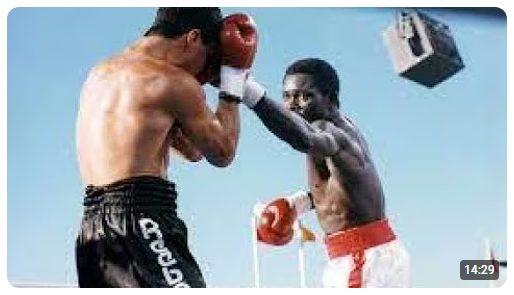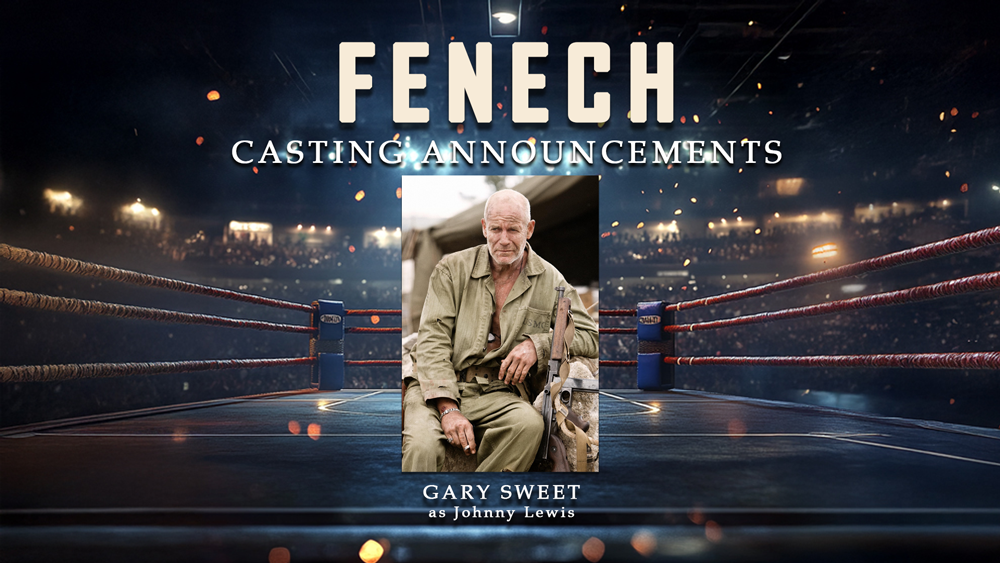
Fenech Script – on second draft
Moving From First Draft to Second Wind: Taking FENECH into Draft Two with Script Editor Anthony Hayes
I started writing FENECH – The Jeff Fenech Story because I wanted to capture the raw, complicated, funny, stubborn, generous human being behind the belts and headlines. The first draft did its job: it wrestled a wild, sprawling life into a single, beating narrative. Now I’m deep into the second draft with script editor Anthony Hayes—and the work we’re doing together is sharpening the film into something leaner, braver, and, I believe, unforgettable.
“Working with incredible talents like Anthony Hayes reminds me why collaboration is the heartbeat of filmmaking. He brings not just skill, but truth and grit to every page—and that energy pushes me to dig deeper, to make Fenech the most powerful story it can be.”
Why Anthony Hayes
Anthony is one of those rare multi-hyphenates who understands story from the inside out—actor, writer, director, producer. He’s best known on screen for films and series like Animal Kingdom, The Light Between Oceans, War Machine and The Slap. As a filmmaker, he co-wrote, directed, produced and co-starred in Gold (2022) alongside Zac Efron and Susie Porter—a stripped-back survival thriller that proves how much drama you can squeeze from pressure, isolation and character. He’s also a two-time AFI/AACTA Best Supporting Actor winner (Look Both Ways and Suburban Mayhem), which tells you everything about his eye for truthful performance.
Working with someone who’s lived the grind of making a film like Gold—paring story to its tensile core, building tension without bloat—has been a gift to this draft of FENECH. Anthony’s feedback is never academic; it’s practical, actor-focused, and brutally honest about what will play when the camera rolls.
What We’re Changing in Draft Two
Point of view clarity. The script now hugs Jeff’s POV more tightly. When scenes move away from him, they do so to sharpen the blade: to reveal stakes, betrayals, or costs that will collide with him later.
A cleaner spine. We’ve organized the narrative around Jeff’s defining crucibles rather than a greatest-hits chronology—his early hunger and discipline, the rocket-ride to world titles, the toll of fame and loyalty, the injustice and aftermath of the Nelson saga, the love and family that ultimately tether him, and the near-death reckoning that reframed everything. Each movement now turns on a choice Jeff makes under heat, not just an event that happens to him.
Less exposition, more pressure. We’re cutting the dialogue that explains and doubling down on moments that corner Jeff—rooms where money talks in riddles, back-gym vows that cost more than they promise, hotel-room silences where a fighter faces the bill for all the bravado. When we do explain, it’s through behavior: the way Jeff wraps a hand, greets an old mate, or swallows an insult.
Performance fuel. Anthony’s actor brain has been crucial here. Beats are written to give performers playable actions—coax, needle, bluff, placate—so the drama lives between the lines. It’s the difference between “good scene” and “scene that breathes.”
“Powerful, exhausting, brilliant characters …”
Why This Version Hits Harder
Jeff’s story is bigger than boxing. It’s about identity, loyalty, injustice, pride, and the risk of loving something so much it nearly breaks you. This draft doesn’t flinch at the contradictions: the national hero who still carries street instincts; the loyal friend who sometimes paid for it twice; the showman who hates excuses; the husband and father who learns—too late in some rooms, just in time in others—what truly matters.
By grounding every chapter in a cost—what each win extracts, what each loss teaches—we’re making a film that feels lived-in, not ornamental. You feel the altitude in the lungs, the wrap biting into bruised knuckles, the fatigue that follows a bad decision home. And you feel the grace notes: a laugh that breaks tension, a wordless look that forgives more than a speech ever could.
Shaping the Film On Screen
Tone: muscular and intimate. Big-arena stakes with close-quarters honesty.
Pacing: fast where it should sprint (training, build-ups, media storms), still where truth needs oxygen (kitchen tables, hospital rooms, private reckonings)
Cinematography & sound: fights that put you in the ring—rhythm, breath, corner talk—contrasted with real-world quiet that lets consequences echo.
Performances: written to invite courage from the cast—no saints, no monsters, just people making choices under pressure.
Where We’re Headed
Draft Two is about precision: cutting away everything that isn’t Jeff’s truth and amplifying the beats that are. With Anthony pushing for clarity and character torque, the screenplay is evolving into the kind of story that doesn’t just recount a career; it tests a man—and lets the audience feel every round of that test.
It’s early to say “this is the draft,” but it’s fair to say this is the direction: fewer adornments, more consequence. Less mythology, more man. And that’s exactly how FENECH should land—heavy, human, and impossible to shake.
Related Articles
Iconic Australian Actor Gary Sweet Joins FENECH – The Jeff Fenech Story as Legendary Trainer Johnny Lewis
We are absolutely thrilled to announce that the iconic Gary Sweet has officially joined FENECH – The Jeff Fenech Story to portray one of the most important characters in the film: Johnny Lewis.
Producer Lucinda Bruce joins Fenech
Wingman Pictures is proud to welcome Lucinda Bruce to FENECH – The Jeff Fenech Story as Producer.





